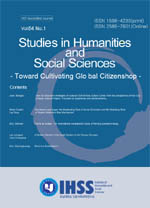한국에서 난민 인식과 수용 태도의 이중성 : 인지-지식 차이와 조건적 수용 태도 간 교차분석
Beyond Yes or No : Cognitive-Knowledge Gap and Conditional Refugee Attitudes in South Korea
- 호남대학교 인문사회과학연구소
- 인문사회과학연구
- 제68권 제2호
-
2025.055 - 30 (26 pages)
-
DOI : 10.17939/hushss.2025.68.2.001
- 134

본 연구는 한국 사회에서 난민 수용에 대한 시민들의 태도가 어떻게 형성되며, 어떤 조건에서 변화하는지를 실증적으로 분석하였다. 특히 주관적 인지과 객관적 지식 간의 차이와 인지-지식 조합이 수용 태도 전환에 미치는 영향을 고찰하였다. 분석 결과, 한국 사회에서 난민 수용 태도는 고정된 이념이나 도덕적 신념의 반영이 아니라 ‘전쟁’이나 ‘박해’와 같은 구체적 상황이 제시될 때 수용 가능성이 높아지는 경향을 보여 질문 맥락과 정보 조건에 따라 달라지는 ‘조건적 수용 태도’의 특성을 띠는 것으로 나타났다. 이는 난민에 대한 시민들의 태도가 단일한 가치 지향에 근거한 것이 아니라, 정보 수준, 정서적 거리감, 질문의 맥락 등 다양한 요인의 상호작용 속에서 구성된다는 점을 의미한다. 이를 통해 본 연구는 난민에 대한 단순한 정보 제공을 넘어, 정서적 공감과 맥락적 이해를 고려한 커뮤니케이션 전략이 병행될 때 난민에 대한 사회적 수용성이 보다 효과적으로 제고될 수 있음을 시사한다.
This study empirically examines how South Korean citizens form and their attitudes toward refugee acceptance, focusing on the interaction between perceived understanding (subjective cognition) and factual knowledge. Specifically, it investigates how the mismatch between these two components—and their combined typology—affects changes in acceptance under different contextual framings. The findings reveal that refugee acceptance is not rooted in fixed ideological or moral orientations, but rather represents a conditional attitude shaped by information context and question framing. When concrete scenarios such as “war or persecution” are presented, respondents show a significantly higher likelihood of acceptance, particularly among those with both high perceived understanding and high factual knowledge. This suggests that public attitudes toward refugees are constructed not through stable value commitments alone, but through the interplay of information level, emotional proximity, and the way refugee issues are framed. These results highlight the importance of communication strategies that go beyond simple information delivery and incorporate emotional resonance and contextual relevance to improve public receptivity to refugee policy.
Ⅰ. 서론
Ⅱ. 이론적 논의
Ⅲ. 분석 설계
Ⅳ. 경험적 분석
Ⅴ. 결론 및 함의
Reference
(0)
(0)